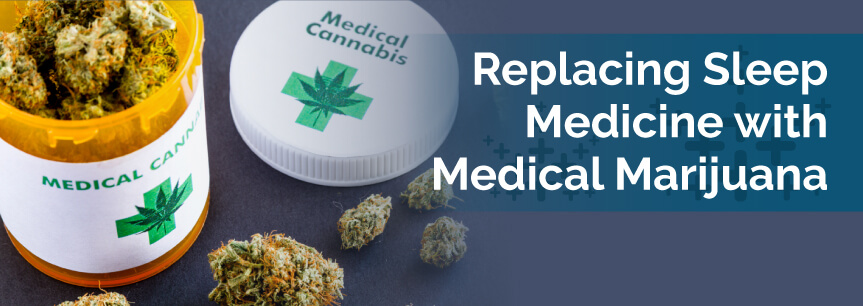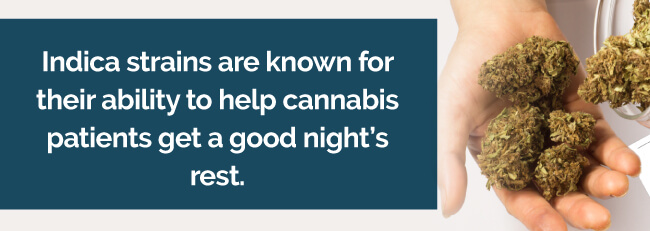
Sleep is a crucial part of daily life. If we don’t get good sleep, we can’t function at our best — not to mention how much harder it makes waking up in the morning.
But, many of us find sleep elusive. So, more than 8.5 million people in the United States use prescription sleep medication. Those who don’t use prescription medications try supplements and over-the-counter drugs.
However, a good night’s sleep isn’t as simple as taking a pill. Prescription medications don’t work well for everyone, and they often come with incredibly inconvenient side effects. Even supplements and over-the-counter treatments come with side effects — if they work well at all.
Because of these complications, more and more patients turn to cannabis medicine to promote sleep. Find out how you can replace your sleep drugs with natural relief.
The pharmaceutical industry gives patients multiple options for sleep medicine. It comes in multiple categories, such as:
You may have tried many kinds of sleep medications, or you may have tried none at all. Regardless of what you’ve used in the past, medical marijuana could work for you.
When over-the-counter sleep aids don’t do the trick, patients have to try prescription medications. But, two commonly prescribed types of sleep medications, benzodiazepines and Z-drugs can cause dependency and addiction. Patients who get addicted to sleep meds not only deal with withdrawal symptoms, but they also have to take more of the drug to get the same effect.
Sleeping pill withdrawal symptoms are nothing to sneeze at, so it’s no wonder people who experience them feel like they must keep on using the medication. They can deal with issues like:
Since sleep drugs depress your nervous system, they can cause serious consequences when someone overdoses on them. Sometimes symptoms like drowsiness and sleep apnea increase, putting you at risk of injury or death. A lethal overdose of pills that affect GABA receptors completely blocks the receptors, causing you to stop breathing.
Many medical marijuana patients report improved sleep, even when they don’t take cannabis specifically for sleep problems. Not only does it directly handle sleep symptoms, but it also treats a wide variety of underlying causes of sleep disturbances. Common reasons for sleep problems that cannabis can treat include:
As you can see, marijuana can take care of many symptoms at once. So, if you deal with other health issues in addition to your sleep problems, you can use cannabis to treat them as well.
Two of the chemicals in marijuana, or cannabinoids, can especially help you fall asleep. Cannabinol, or CBN, provides the most sedative properties. However, tetrahydrocannabinol, or THC, can also promote rest as long as you monitor its impact on anxiety symptoms.

Indica strains are known for their ability to help cannabis patients get a good night’s rest. While the other primary type of marijuana strain, sativa, provides an uplifting and energetic feeling, indica strains produce a relaxing and sedating effect. Patients who find a 100% indica strain sedates them too much can even choose a hybrid that balances out the two strains’ effects.
If you stick to marijuana that helps with sleep instead of energy, you can use it to treat your insomnia in many ways. Depending where you live, you can have access to medicine like pure marijuana bud, cannabinoid capsules or edibles. While sleep medication usually comes in tablet or capsule form, you can adjust your medicine to fit your lifestyle.
Not all patients completely substitute their sleeping pills for medical weed. Some use it in conjunction with a less intense medication so they can get the effect they need. But, if you decide to use a sleeping medication and medical marijuana together, the common side effects between the two drugs — such as drowsiness — will increase.
Like when you take any new medication, you should talk with your primary care provider about medical marijuana. If your doctor won’t or can’t help you, there are licensed marijuana doctors out there who are happy to help. With a few clicks, we can help you find a practice in your area and schedule an appointment.
No Information on MarijuanaDoctors.Com should be used to diagnose, treat, prevent or cure any disease or condition. You can view our Full Disclaimer here.